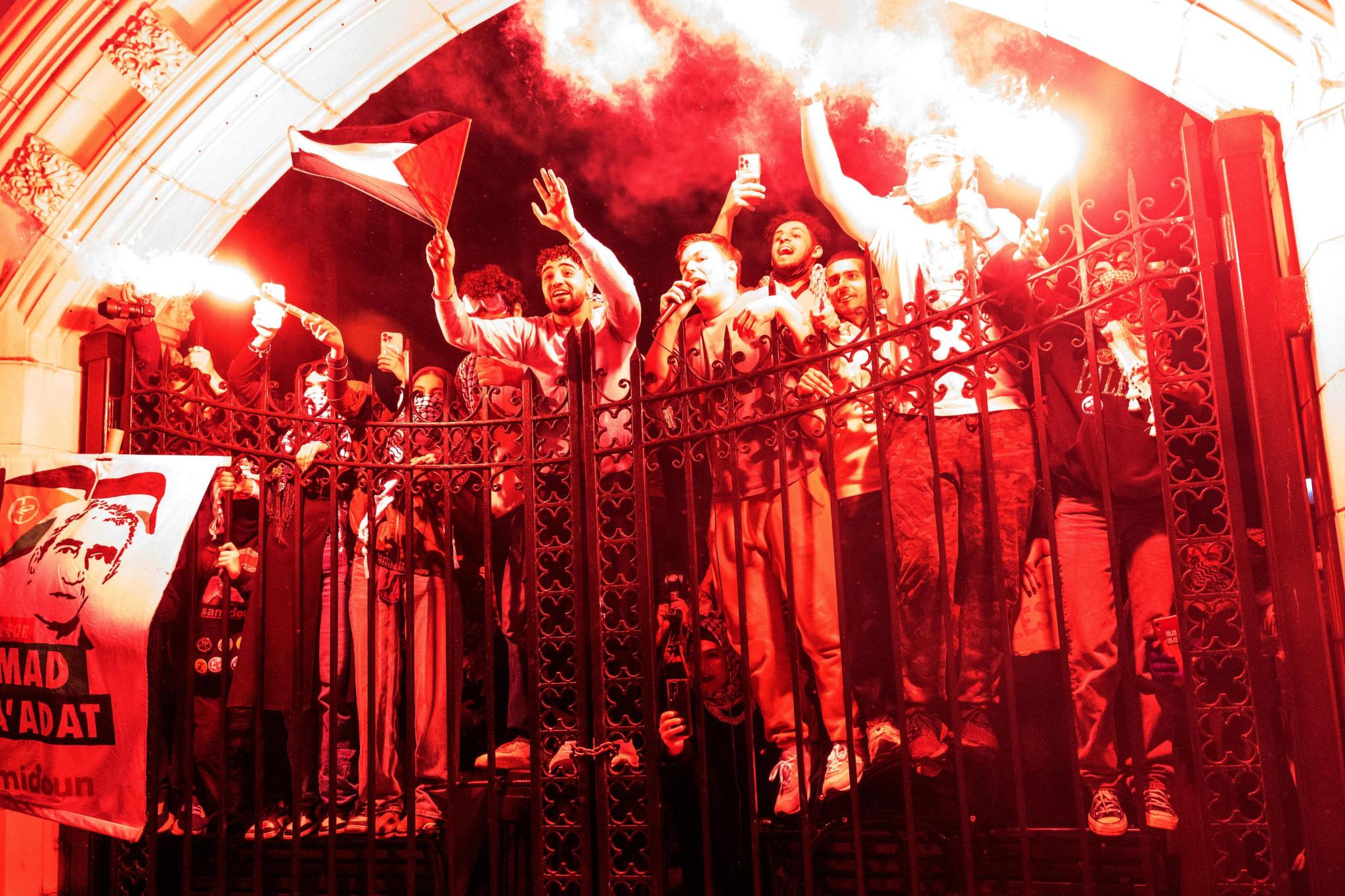The Zionist war on education is as old as the entity. After the Nakba, the Israeli regime began centralizing curricula under its nascent Ministry of Education with the goal of “raising youth on the values of Israeli culture and love of the [Jewish] nation.” This eventually meant banning the word “Nakba” from Arab children’s textbooks and criminalizing the teaching of Palestinian resistance history in public schools. During the First Intifada, which began the following year, Israel forced the closure of universities in the West Bank as students from Jabalia to Tulkarem took to the streets. In subsequent decades, schools in Gaza became the targets of bombing raids while those in the occupied West Bank were marked for demolition as new Israeli settlements closed in.
It is a losing war. Over the course of the ongoing genocide in Gaza, the Zionists have bombed every university in the strip, razing campuses, libraries, and archives to the ground. In the West Bank, they have surveilled and arrested hundreds of student organizers while also cracking down on political education efforts in Israel’s prisons. To quell opposition to this genocide within the imperial core, the entity and its chief co-conspirator, the American ruling class, has relentlessly waged lawfare on the academic front. Last spring, as North American students occupied lawns and buildings to pressure their universities to divest from the war machine, administrators responded by banning assembly, outlawing movement slogans, and inviting riot police to brutalize protestors, all while quietly installing more surveillance cameras. Today, Columbia University is caving to every new demand of the Trump administration, including adherence to the International Holocaust Remembrance Alliance’s falsified definition of antisemitism, which prohibits, interalia, “drawing comparisons of contemporary Israeli policy to that of the Nazis.” None of this has prevented the truth of the situation from effecting the greatest upheaval in consciousness since the late 1960’s.
Everyone knows about Palestine because of the students: This is the refrain we have heard from the ground again and again, whether we are interviewing organizers at Birzeit or speaking with young journalists in Beit Hanoun. The seething persistence of the enemy’s attacks on education signals the threat that Palestinian knowledge production and student protest pose to the Zionist project. By studying their history and passing it down to successive generations, by developing stronger analyses of Zionism and better strategies to fight it, by turning Zionist prisons into schools, Palestinians have kept the flame alive through 75 years of empire’s attempts to extinguish resistance.
Keeping the flame alive sometimes means burning low so we don’t burn out. It means watching, studying the enemy’s movements, biding our time until the moment is right for a conflagration. We offer this issue – the Disorientation Edition – at a time of staggering devastation in Gaza and demobilization in the West Bank, but also a moment where many students in North America, their easier material conditions notwithstanding, are demoralized and fatigued by this racism and repression that comes with advancing the righteous cause. We find ourselves asking: How can we best be of use to the movement for Palestinian liberation from our various positions in, around, and against the university? How can we support revolutionary cultural production? How can we struggle with the masses amid new regimes of surveillance and racialized class warfare? How can we fight back and win?
Published in collaboration with the editors of The Written Resistance, a quarterly newsletter by National Students for Justice in Palestine, this issue of The New York War Crimes offers some, but not all, of the answers. We are moved by the experiences of students across the U.S. who refuse to let the state and school administrators stop the fight against Zionism and imperialism, and we are honored and proud to publish testimonies from young people in the Strip who continue to study together despite famine and displacement.
Last year, from a tent in Rafah, Tamer Abumousa defended his master’s thesis on the psychological stressors experienced by education counselors in Palestine — a testament to his people’s efforts to preserve Palestinian knowledge production. He is one of many reminding us that the popular university is already here.
As a new school year begins, it is incumbent upon us all to come together, in study, in struggle, and in strategy sessions, using all our collective strength and knowledge to fight for a liberated Palestine in our lifetime.
This piece appears in the nineteenth issue of The New York War Crimes


